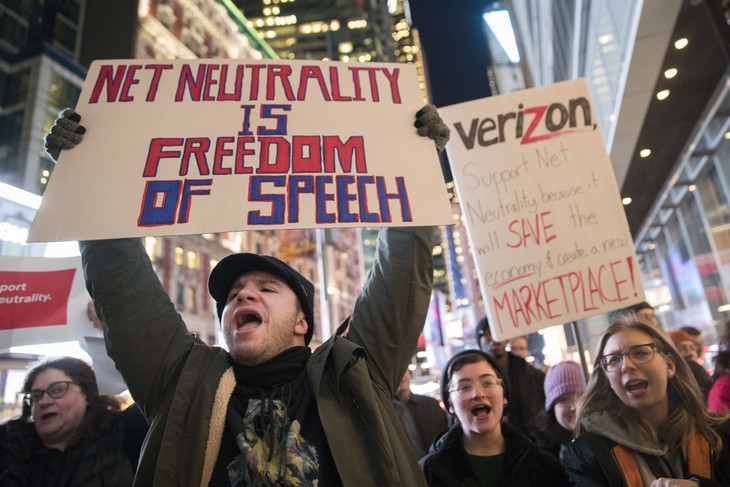
Remember net neutrality?
Yeah, neither do most people. It was a bit confusing in first place. Trying to explain net neutrality to a headline-reader culture was like trying to explain Gamergate to almost everyone who isn’t a gamer. There was a lot to chew on and as a result not many Americans had a solid handle on what net neutrality was all about, or how it would or wouldn’t affect their lives. They just knew “Democrats good, Republicans bad!” and formed opinions from there.
In a very frail nutshell, net neutrality was basically a lot of government regulation, which is why Obama was so excited to sign it, and why Trump was thrilled to see it repealed under his administration. The left screamed about the coming internet apocalypse but as with every other policy that removes a sliver of government from the lives of Americans, it turned out to be just fine. They were wrong. Unsurprisingly.
As it turns out, not only was the outrage over the repeal of net neutrality completely unjustified, much of it was completely fake.
As the battle was in full swing in 2017, the FCC received over 22 million public comments for and against the repeal, but as it turns out, millions of those comments were not individual communications but spam blasts. A new report from the Attorney General of New York, Letitia James, has found that 7.7 million comments in support of net neutrality were generated by just one person, a 19-year-old college student.
And it wasn’t just the pro-net neutrality comments that were found to fraudulent. James’ investigation also discovered a “broadband industry group” spent a lot of money to generate nearly 8.5 million comments in favor of repealing the FCC policy.
So nearly all of the public comments generated on the very dry but important topic of net neutrality were fake.
A fitting controversy for the post-Trump era.
James‘ report generated some recommendations to shore up the public comment process for federal legislation, and (and this part is hilarious) verify the identity of commenters to make sure they come from real people and not spam programs.
The report also outlines recommendations to improve the transparency and accountability of FCC rulemaking proceedings, which allow the public to weigh in on draft proposals of regulation changes. For instance, it suggests mandating that lead generation vendors receive express, informed consent before submitting a public comment on someone’s behalf.
The New York AG report includes comments from people whose names were used without their permission. One expressed disgust “that somebody stole [their] identity and used it to push a viewpoint that [they] do not hold.” One 10-year-old boy’s name, address, and valid e-mail was used without his or his parents’ permission. One other victim may have summed it up best: “These are the kinds of actions that make the population lose faith in the system.”
Yes, you read that right. Democrats think verifying a voter’s identity is racist, but verifying a public comment is absolutely necessary so that people don’t “lose faith in the system.”
At least Democrats are consistent in their hypocrisy.

